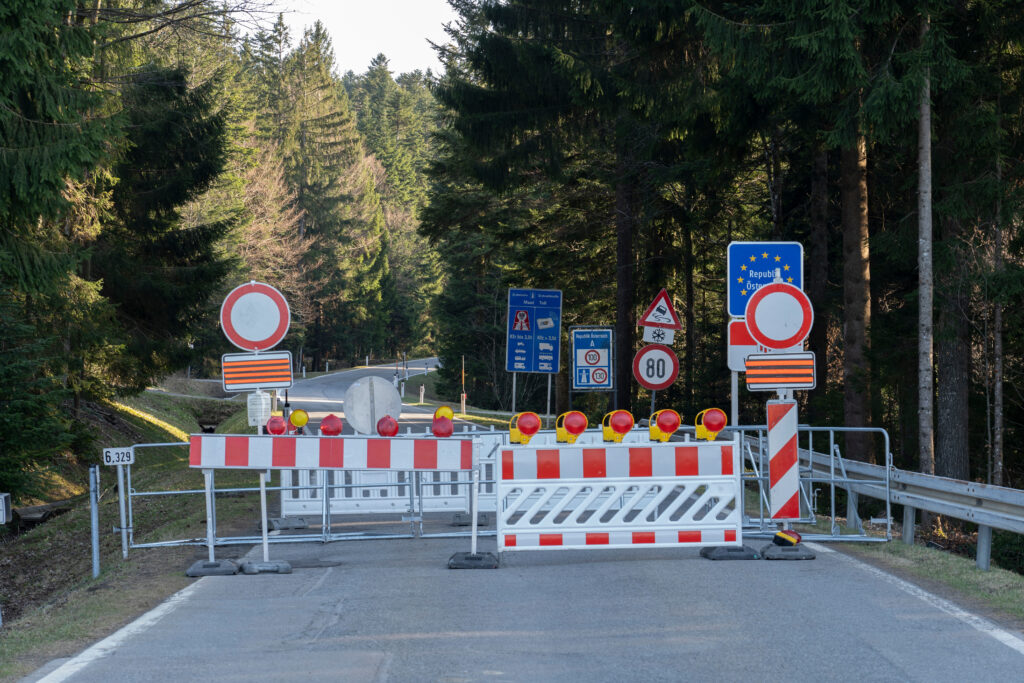Austria has taken urgent action by closing 24 minor border crossings with Hungary and Slovakia. This decision comes after both countries reported outbreaks of foot-and-mouth disease. Authorities aim to stop the virus from crossing into Austria and affecting its livestock industry.
Foot-and-Mouth Disease Spreads in Slovakia and Hungary
Slovakia declared a state of emergency on Tuesday after confirming cases of foot-and-mouth disease on three farms. The following day, Hungary reported its first outbreak of the disease in 50 years. In response, Hungary deployed soldiers and began disinfecting regions along the border with Austria and Slovakia. Both countries have implemented measures to control the virus, such as quarantines and animal testing. Given the virus’s rapid spread, Austria had to act swiftly to protect its territory.
Foot-and-Mouth Disease: A Threat to Livestock
While foot-and-mouth disease is not harmful to humans, it can devastate livestock. Cattle, pigs, sheep, and goats are the most affected animals. Infected animals suffer from fever and painful sores, making it difficult for them to eat or drink. In severe cases, the disease can cause death.
The economic consequences of foot-and-mouth outbreaks are significant. Countries that face such outbreaks must implement trade bans and quarantines. Furthermore, farmers may have to cull infected animals to stop the virus’s spread. These actions often lead to massive financial losses for the agricultural sector.
Austria Takes Immediate Action to Control the Spread
Austria’s decision to close 24 minor border crossings with Slovakia and Hungary aims to reduce the risk of the virus entering the country. These smaller crossings, often used by pedestrians and small vehicles, are harder to monitor and more likely to allow the virus to pass unnoticed. While larger border points remain open, they now face stricter controls.
Austrian health and border authorities have set up epidemic rugs at major crossings. People and vehicles must pass over these rugs to remove any traces of the virus. Furthermore, police are inspecting cars for meat products, which could carry the virus. These additional measures help prevent the virus from entering Austria and protect the country’s agricultural industry.
Protecting Austria’s Livestock from Foot-and-Mouth Disease
Austria has focused resources along the border to prevent the virus from spreading. Health officials are ready to implement emergency plans if foot-and-mouth disease is detected within the country. Authorities are emphasizing the importance of early detection and strict biosecurity measures for farmers.
Farmers must immediately isolate animals showing signs of illness to help control any potential outbreaks. Additionally, public education campaigns are encouraging farmers to report sick animals quickly. This helps authorities react swiftly to contain the disease and protect other livestock.
Economic Impact of Foot-and-Mouth Disease in Austria
Austria’s agricultural industry, especially livestock farming, plays a crucial role in the national economy. A widespread outbreak of foot-and-mouth disease would cause severe financial losses. Trade restrictions and quarantines would further harm Austria’s agricultural exports, which are vital to its economy.
A potential outbreak could also hurt local communities that depend on farming for their livelihoods. Authorities are doing everything they can to prevent the virus from affecting Austria’s agricultural sector, thus protecting the economy.
The Need for Global Cooperation
The outbreak in Slovakia and Hungary underscores the importance of international cooperation in managing animal disease outbreaks. Austria is working closely with both countries to monitor the situation and share information. Collaborative efforts help prevent the disease from crossing borders and spreading further.
Austria’s decision to close the minor border crossings sends a strong message to both its neighbors and the rest of Europe. It shows Austria’s commitment to protecting its livestock and agricultural industry from the virus.
Austria Remains on High Alert
As the situation continues to develop, Austria remains vigilant. The country is prepared to take further action if the virus reaches its territory. Authorities are also keeping a close eye on the border, monitoring both large and minor crossings for any signs of contamination.
Farmers must continue to adhere to biosecurity guidelines. Immediate reporting of sick animals will help control the virus’s spread. Authorities are confident that quick action will prevent the disease from causing major damage to the livestock industry.
Austria’s proactive measures demonstrate the importance of readiness and vigilance when managing animal disease outbreaks. As the situation evolves, Austria will continue to protect its farming community from the potential dangers of foot-and-mouth disease.


